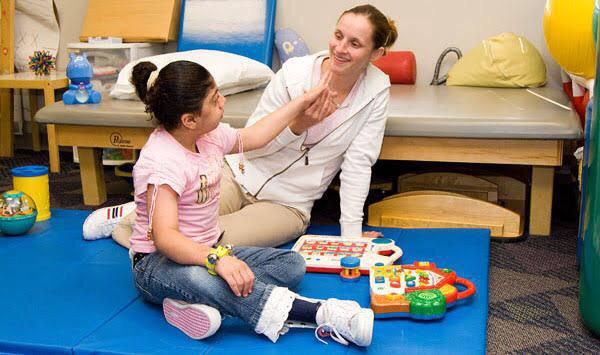OCCUPATIONAL THERAPY CLINIC
Working Time
- Mon-Sat 8:00am – 5:00pm
Contact Info
-
Phone: +234 803 345 1351
Ask the Experts

Occupational therapy is a process that involves the use of assessment and recommended interventions to help adults and children who struggle to do everyday tasks because of poor gross, motor, perception, cognitive, self-care and social-emotional skills. It helps such individuals develop, maintain, or recover the meaningful and necessary skills they need to do daily activities. For children/adolescents, occupational therapy helps to improve the skills needed to do the things they struggle with at home and in school (from zipping of wears to writing etc.).
Children/adolescents who struggle with motor skills tend to be uncoordinated and are often clumsy. Being seen as “different” can put them at risk of being bullied and make them feel like victims. The earlier a child starts occupational therapy, the more effective it tends to be. Being able to do basic tasks can also help build up their self-esteem and confidence, which can drop when they are struggling, especially in front of their peers.
- Assessment
The reason for an occupational therapy assessment is to help the child or young person achieve or maintain their maximum level of independence and to develop practical life skills so that he/she can participate to his/her full potential in the home and classroom environment.
For us, the main objective of occupational therapy assessment is to generate information that may be utilized to develop effective interventions. Our occupational therapy assessment involves an observational assessment that allows for the simultaneous evaluation of motor and processing skills and their effect on the ability of the person to perform complex or instrumental and personal activities of daily living (ADL). We further exercise a functional assessment (this include handwriting and scissors skills, dressing, shoe-tying, buttons and zippers, playground and community skills, toileting, keyboarding, school day functions, personal hygiene, meal time and play) to determine the person’s current functioning which involves identifying areas of strengths and weaknesses in all aspects of daily life and develop recommendations to alleviate identified difficulties so that the person is as independent as possible.
- Intervention
The result from the assessment aims to provide recommendations tailored to the client’s specific needs, then the therapist will create program/activities for the client to work on.
Our occupational therapy is a treatment that functions to improve fine and gross motor skills and motor planning. In addition, it promises help for those struggling with sensory processing and self-regulation. Our therapists also implement a number of professional activities that can help tackle developmental coordination disorder (a condition that impacts motor skills; also known as dyspraxia). Furthermore, our interventions may also help children to adults with other challenges like dyslexia, visual processing issues, executive functioning issues, and dysgraphia.
Occupational tasks and skills focused on at our clinic include:
- Self-care routines which include bathing, getting dressed etc. (fine motor skills and motor planning)
- Speed of handwriting like writing and copying notes (fine motor skills and hand-eye coordination)
- Dexterity such as holding and controlling a pencil andusing scissors (fine motor skills and motor planning)
- Body activity performance such as throwing and catching (gross motor skills like balance and coordination)
- Organizing a backpack like schoolbag(motor planning, organization skills)
- Reacting to sensory input (self-regulation skills)
